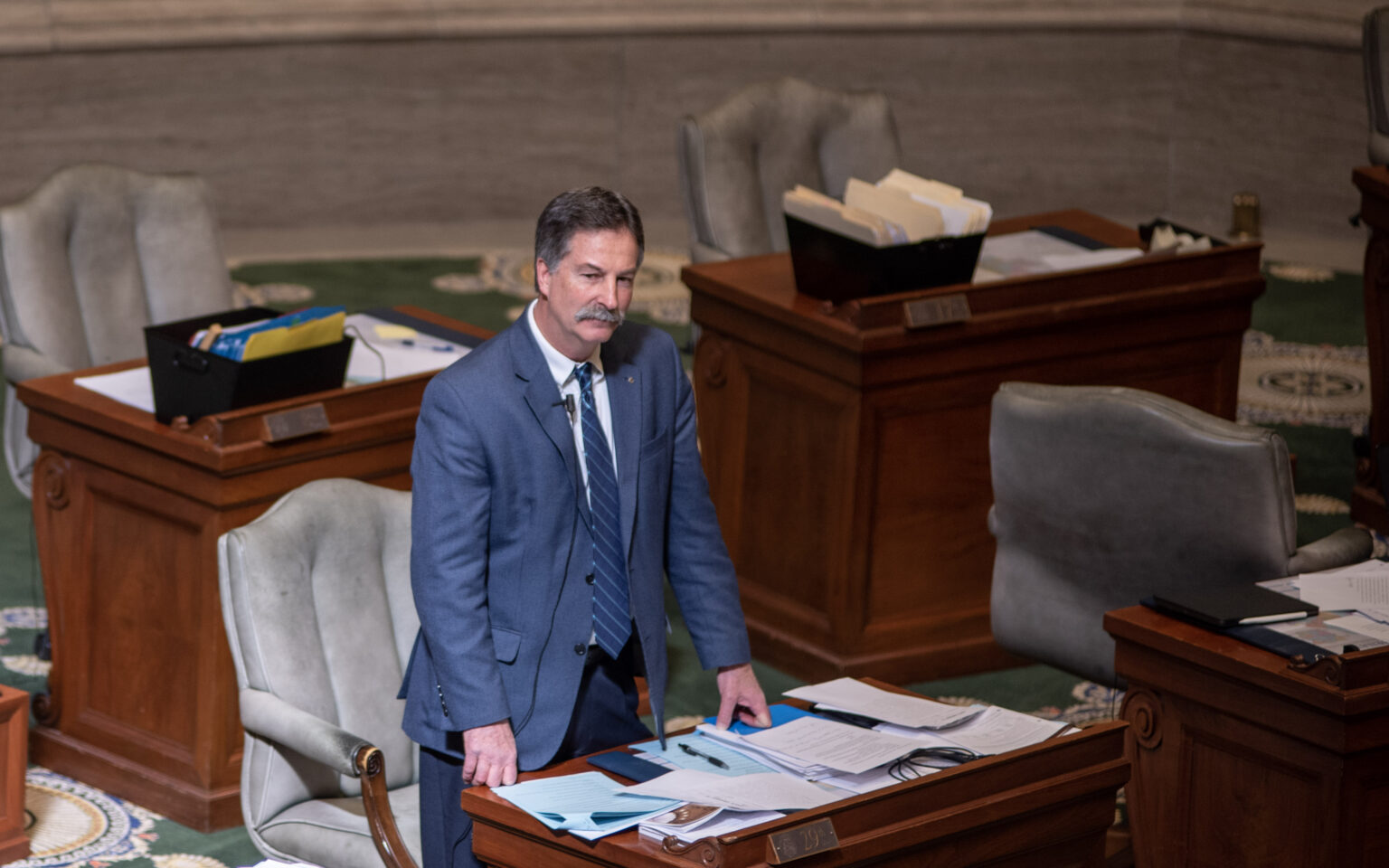Home » News » 2024 » July
News Brief
July 30, 2024 |
By: Annelise Hanshaw - Missouri Independent
Judge says Missouri lawmaker immune from subpoena in challenge of transgender care ban

By Annelise Hanshaw - Missouri Independent
A circuit court judge ruled Monday that state Sen. Mike Moon is immune from questioning in a legal challenge of Missouri’s restrictions on gender-affirming care that he sponsored in 2023.
Wright County Circuit Court Judge Craig Carter, who is stepping into Cole County for the case, agreed with the Missouri Attorney General’s Office that Moon should not be questioned under oath in the case. However, he ruled against the attorney general by rejecting a request to push the trial until after the U.S. Supreme Court hears a similar case.
Attorneys with the ACLU sought to ask Moon, a Republican from Ash Grove, about his communications with lobbyists and advocacy groups in the creation of Missouri’s law. The ACLU is joined by law firms Bryan Cave Leighton Paisner and Lambda Legal seeking to stop the implementation of the law, which became effective nearly one year ago.
ACLU attorney Kristin Mulvey wrote in the plaintiff’s argument that Moon’s communications to advocacy groups, obtained by the ACLU via open records requests, show discriminatory intent in the law’s drafting process.
“Plaintiffs… should be able to examine communications the act’s sponsor had with third parties about the law as they are relevant to the reasons it was passed in Missouri and are likely to demonstrate that the real interests and motivations behind the passage of the act are not what the state claims them to be,” she argued.
The law, coined the SAFE Act, has placed restrictions on gender-affirming care for children, adults on Medicaid and incarcerated Missourians. The text “was apparently supplied by the interest group Family Policy Alliance,” Mulvey wrote.
Family Policy Alliance, based in Colorado Springs, uses religious doctrine to oppose gender-affirming care, gay marriage and abortion.
The attorney general’s office, in a motion filed by Assistant Attorney General Matthew Tkachuk, argued that Moon cannot be questioned because of “legislative privilege.”
He cites the Speech and Debate Clause in the U.S. Constitution, which says “for any speech or debate in either House, (senators and representatives) shall not be questioned in any other place.”
Mulvey argued the clause applies to Moon’s speech on the Senate floor but does not protect his communication with third parties. She emphasized voters amended Missouri’s Constitution in 2018 clarifying that legislative records are open.
But Tkachuck said legislative intent is protected and, regardless, irrelevant to the law’s constitutionality.
Tkachuck said during Monday’s hearing that the subpoena of Moon was “unconstitutional, unprecedented and unhelpful.”
“The motivations of an individual legislator are not relevant to the constitutionality of a statute, which either meets constitutional muster on its merits or does not,” he wrote in the state’s argument.
Separately, the parties argued about the trial’s timeline. It is scheduled for a bench trial, meaning the judge rules on constitutionality, in late September.
Peter Donahue, assistant attorney general for special litigation, told Carter the witness list had been reduced to 35 people: 20 for plaintiffs and 15 for the state with “substantial discovery on both sides.”
The discovery process has been burdensome for both parties, with each asking Carter to force the disclosure of documents they deemed wrongfully withheld.
Donahue said he foresees litigation with the World Professional Association for Transgender Health, a third party the attorney general’s office is seeking information from for the case, to get documents.
Omar Gonzalez-Pagan, an attorney for the plaintiffs, said “nothing here in the discovery schedule compels the motion for a continuance.”
The attorney general’s office sought to delay until the U.S. Supreme Court rules on Tennessee’s gender-affirming-care ban. Gonzalez-Pagan said it would likely be a year — a long time for the patients who have been denied medical care under the law.
“It just flies in the face of everything this case is about to say that in a delay of a year, no harm is caused,” he said.
There are matters that the Supreme Court case will not touch on, like Missouri’s restrictions for Medicaid patients and incarcerated individuals, Gonzalez-Pagan told Carter.
Other courts are hearing challenges to their state bans, and just one has delayed trial, though it was at the request of the plaintiff, he said.
Gonzalez-Pagan cautioned that the plaintiffs may age-out of the statute if delays continue.
“The plaintiffs in this case deserve their day in court,” he said. “By asking for a continuance, the state is in essence denying it.”
Missouri’s attorney general is embroiled in a handful of lawsuits after he launched an investigation of gender-affirming care. He has asked for records from those who provided hormone-replacement therapy prior to the law’s enforcement and called for the State Division of Professional Registration to prod therapists who have referred minors for gender-affirming care.
Moon could not be immediately reached for comment.
![]()






